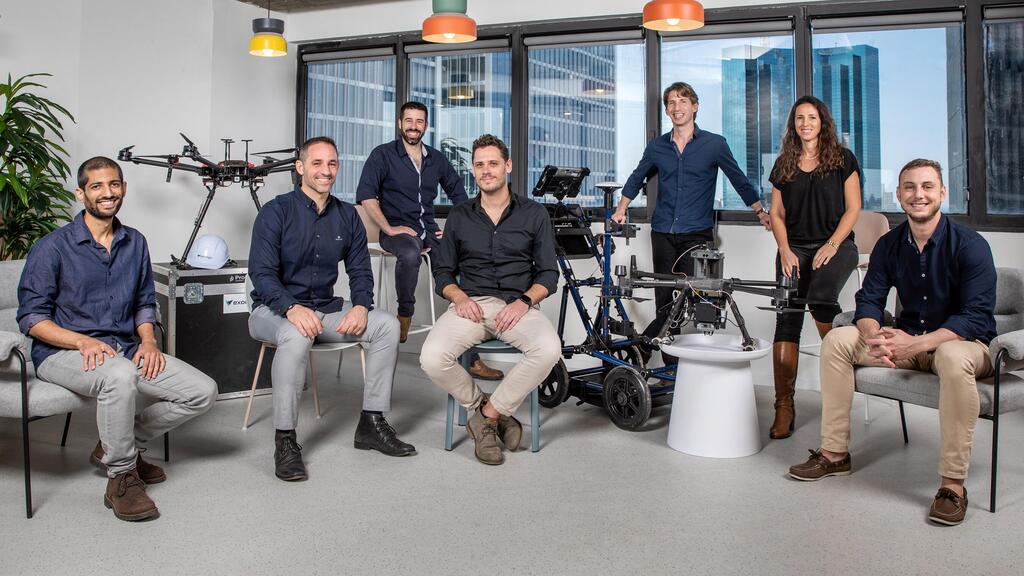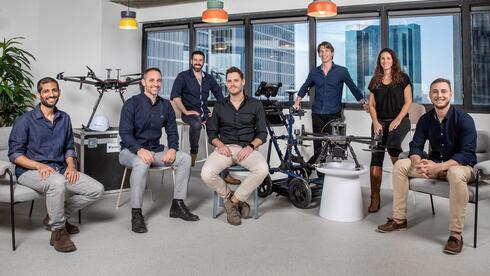
Most Promising Startups - 2024
Rising from the depths: Exodigo’s journey through war and innovation
The Israeli startup navigated through the challenges of war as its employees were drafted into reserves, all while maintaining operations and advancing its groundbreaking AI technology for underground mapping
On October 7, Jeremy Suard, Co-Founder and CEO of Exodigo, found himself quickly packing clothes and heading towards Gaza. He wasn’t alone; 60 out of Exodigo’s 80 employees were also drafted into reserves, some to selected combat units and others to various intelligence units. One employee, Amit Shahar, was killed while serving as a reservist in a combat engineering unit in January. Employees who were drafted remained in the reserves for as long as three months. Simultaneously, employees at the Israeli office and those working overseas, worked intensively and managed to sign quite a few deals, but asked most clients to hold off on implementing them immediately. The war not only did not stop the company but also taught its management and other employees to cope with extreme circumstances, not long after the company’s founding in 2021.
See the whole Top 50 Most Promising Startups 2024 list here
Exodigo, which has already raised over $100 million, was founded by alumni of the IDF’s intelligence units. They veered from tradition by opting not to establish yet another cyber company, as most army intelligence graduates do, but to develop an AI solution for underground mapping, produced through simulation of multiple sensors, 3D imaging, data fusion, and a proprietary AI platform. Their technology allows for subterranean infrastructures and various subsoil features to be identified on a map without the need for time-consuming and costly digging operations.
The company is currently transitioning from combining full-service scanning through its scanning system to having its scanning system operate independently, allowing Exodigo to be a technology-only company. In the coming year, which is expected to be a major breakthrough year for the company, Exodigo is planning to double its number of employees. At the end of 2024, the company will employ about 220-230 employees worldwide. In 2023, the company signed contracts worth about $10 million, and according to estimates, it will sign additional contracts worth tens of millions of dollars this year.
Their solution allows planners, engineers, and decision-makers to get a full picture of everything underground, including mapping of abandoned infrastructures that don’t appear on existing maps. This is in addition to identifying subsoil features, including areas such as graves and sinkholes, and in the future, they plan to be able to identify the composition of soil layers, water depth levels, and more.
Exodigo's clients include international companies managing the world’s largest projects in transportation, energy, planning, and engineering in Israel, the United States, and Europe. Among them are leading companies in Israel, such as the Israel Electric Corporation, the Tel Aviv area light rail, Israel Natural Gas, the Jerusalem light rail, National Roads Company of Israel, TransIsrael, the Ayalon Highway, the Trans-Israel pipeline, Mekorot, and leading planning and engineering company, Waxman-Govrin.
Abroad, Exodigo works with energy giants such as National Grid, the electricity and gas company of California (PG&E), and leading European companies such as the national gas companies of Italy (Italgas) and France (GRDF). Transportation clients include leading transportation authorities and metro systems, including the Los Angeles Metro Rail and the City of Houston, the major railway project in the U.K. - HS2. The company has also worked with leading planning and engineering companies such as HNTB, Aecom, HDR, Vinci, Colas Rail, and others.
Related articles:
Where is the company headed in the coming years?
"When you start a startup, you do so for one of two reasons: either to develop the best software in the world or to solve a problem. We are looking to solve problems, and we try to solve them all no matter what it takes, like Elon Musk’s companies. I really connect with this approach - he doesn't build a rocket and sell it to NASA - he sells it to space; he doesn't build a battery, but an electric vehicle. In order to be a giant company, you can't just build a feature. In the cyber world, you can establish feature companies because they sometimes solve a problem. I want to solve the whole problem, I want it to be giant, and I will search for solutions in the world of technology. I’m using a tech company to take over a non-technological area. In the construction world I’m in now, of the top 100 global companies there are almost no tech companies except for Autodesk. In almost every other field, there are mostly technologies but in the construction industry, you need to replace what they’re doing. You can't just supplement, you really need to break the existing ecosystem.
"Today, I'm only doing it with infrastructure maps, but I want to expand it to cables and subsoil vehicles, not just infrastructure identification but also engineering and minerals. We have a competitor who looks at how to do everything through software, and we are looking to provide a complete solution, and it's actually not a competition. There are fast, cheap, and easy solutions that people will buy, and there are premium solutions, which we provide, but there's no risk, and that's a huge difference in approaches and it doesn't always fit investors' mentality. If I had raised seed money during the market downturn, I may not have been successful and then I might choose to start with software solutions. I founded the company this way because I knew I could raise enough money for a relatively expensive company. Companies I draw inspiration from, like Amazon, do everything. In companies like ours, the beginning is riskier, and as time goes by, the chances of establishing a giant company grow, but it would be a mistake to sell it, and we have a very tough journey ahead.”
Company ID
Exodigo
Sector: Underground mapping using AI
Founded: 2021
Founders: Jeremy Suard, CEO, and Ido Gonen, CTO
Employees: 216 in Israel, the U.S., and the U.K.
Funding: $118 million from Greenfield Partners, Zeev Ventures, Square Peg, 10D, JIBE, National Grid Partners, Waxman Govrin Geva, Tidhar, and Israel-Canada.
